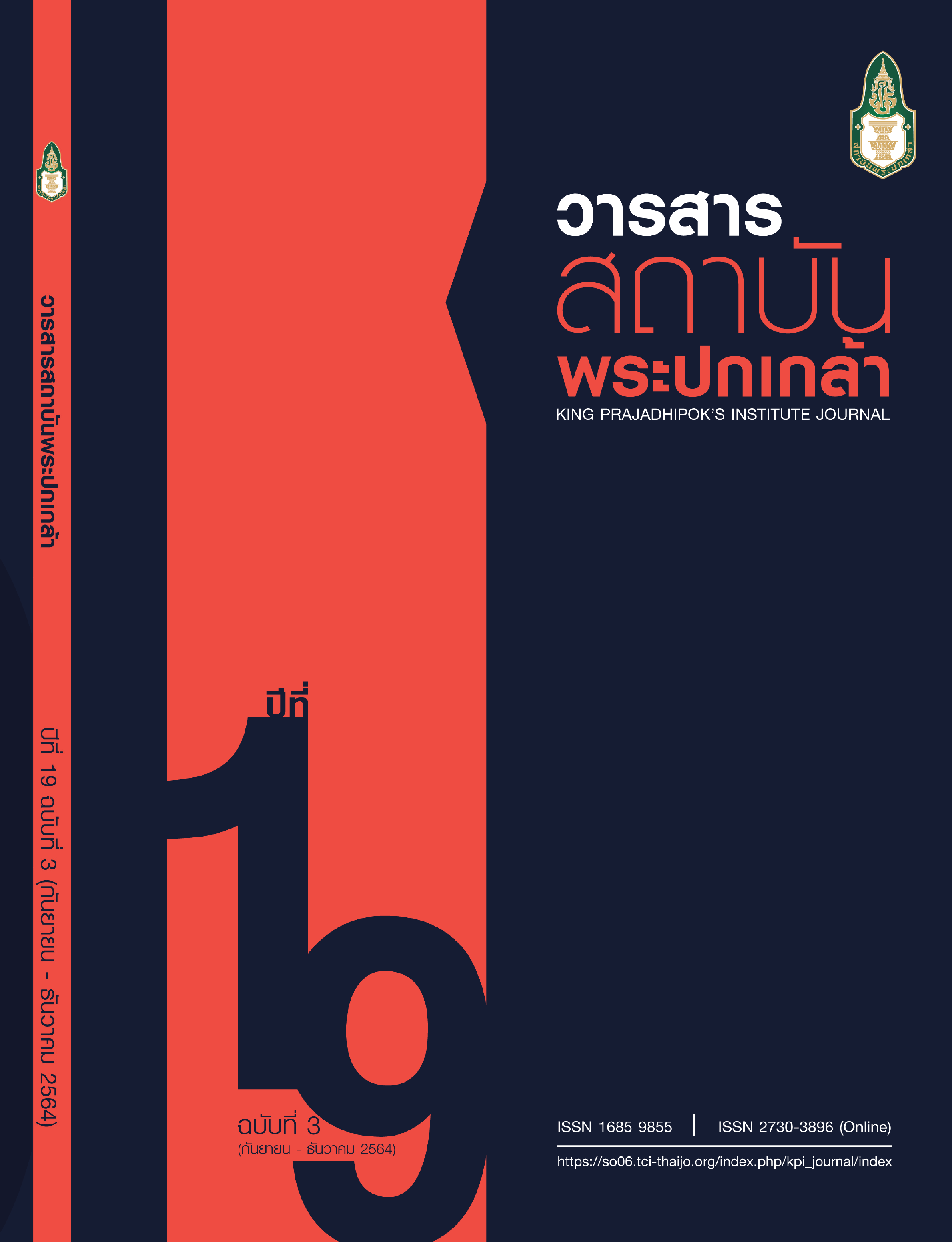Problems on Appropriateness of Criminal Measures Enforcement: A Study of the Public Assembly Act B.E. 2558
Main Article Content
Abstract
Freedom of peaceful assembly and without weapons is a crucial liberty in democratic states, as it is a means that people use for expressing their opinions or proposing their requests to the state or its administration to acknowledge and solve their problems. Therefore, such liberty is acknowledged and protected in both international and domestic laws. However, it is universally acknowledged that such liberty is a relative liberty. Hence, the state may enact laws to restrict such liberty. The Public Assembly Act B.E. 2558 has formed the rules and regulations regarding public assembly, hoping that public assemblies are in order and peaceful. However, some provisions relating to determination of offenses and criminal measures are disproportionate to the harm of the offenses and not inconsistent to the provision of Article 77 of the Constitution of the Kingdom of Thailand B.E. 2560. As a result, the freedom of assembly is significantly affected. The author therefore conducts a comparative study of the laws related to public assembly of other countries to use as a guideline for the amendments of the current governing laws.
The study has found that the United States of America, the People’s Republic of China, and the French Republic have imposed criminal measures on gatherings that may cause serious consequences to individuals, society, and the states. Degrees of severity of criminal measures vary to the harm of committed offenses.
Therefore, it is important to amend the Public Assembly Act B.E. 2558 to be appropriate, proportionate with the harm of offenses, in line with the politics and governance, and the principle of Article 77 of the Constitution of the Kingdom of Thailand B.E. 2560.
Article Details

This work is licensed under a Creative Commons Attribution-NonCommercial-NoDerivatives 4.0 International License.
@ 2020 King Prajadhipok's Institute The Government Complex Commemorating All Right Reserved.
References
เกียรติขจร วัจนะสวัสดิ์. (2551). คำอธิบายกฎหมายอาญาภาค 1. พิมพ์ครั้งที่ 10. กรุงเทพฯ : พลสยาม พริ้นติ้ง (ประเทศไทย).
เรย์มอนด์ แวคส์. (2555). กฎหมาย: ความรู้ฉบับพกพา. (ฐาปนันท์ นิพิฏฐกุล). กรุงเทพ : ภาพพิมพ์.
วารุณี วัฒนประดิษฐ. (2551). เสรีภาพในการชุมนุมโดยสงบและปราศจากอาวุธ. (วิทยานิพนธ์มหาบัณฑิต) มหาวิทยาลัยธรรมศาสตร์, คณะนิติศาสตร์, สาขากฎหมายมหาชน
สมชาย ปรีชาศิลปกุล. เสรีภาพในการชุมนุมโดยสงบและปราศจากอาวุธตามบทบัญญัติแห่งกฎหมาย. กรุงเทพฯ : สำนักงานศาลรัฐธรรมนูญ.
ภาษาต่างประเทศ
Ashworth Andrew, (2006) Principle of Criminal Law. 5th Edition. Oxford : Oxford University Press.
Justia US LAW. (2020) 2020 California Code Penal Code. สืบค้นจาก https://law.justia.com/
codes/california/2020/code-pen/part-1/title-11/.
Legifrance. (2021) Code de la defense. https://www.legifrance.gouv.fr/codes/section_
lc/LEGITEXT000006071307/LEGISCTA000006151486/#LEGISCTA000006151486
Legifrance. (2021) Code de la sécurité intérieure. สืบค้นจาก https://www.legifrance.gouv.fr/
codes/id/LEGISCTA000025508382/
Legifrance, (2021) Loi du 30 juin 1881 sur la liberté de reunion. สืบค้นจาก https:// www.legifrance.gouv.fr/loda/id/JORFTEXT000025148185/
Legifrance. (2021) Loi n 55-385 du 3 avril 1995 relative a l’etat d’urgence. สืบค้นจาก https://www.legifrance.gouv.fr/codes/id/LEGISCTA000025508382/
The National People’s Congress of the People’s Republic of China. (2021) Law of the People's Republic of China on Assemblies, Processions and Demonstrations. สืบค้นจาก http://www.npc.gov.cn/zgrdw/englishnpc/Law/2007-12/12/content_1383911.htm.


